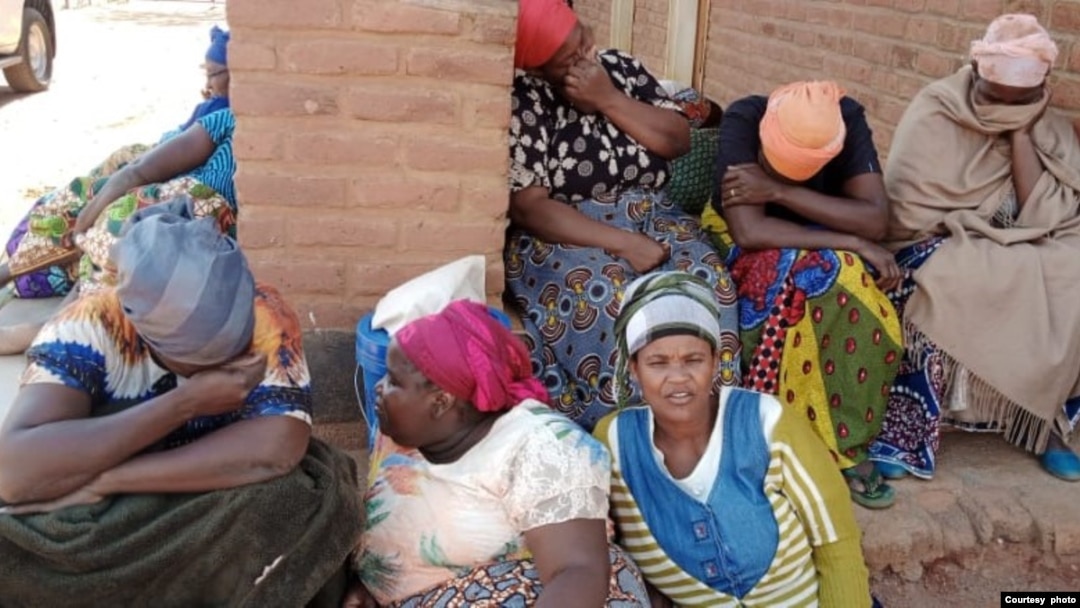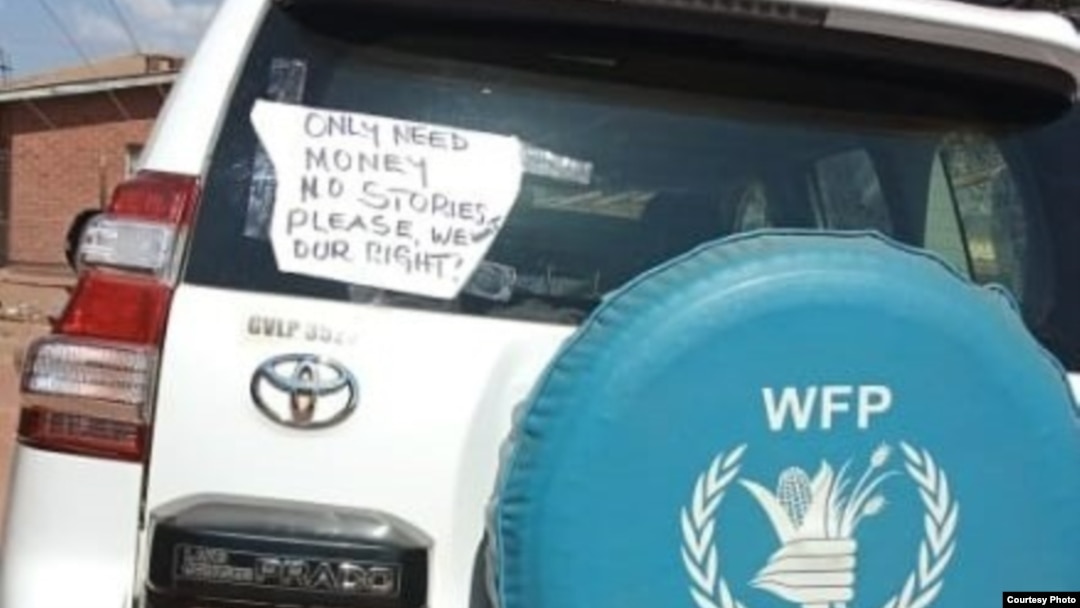Refugees in Malawi's Dzaleka camp who were removed from a food rations list have protested and seized a World Food Program vehicle.
The WFP removed about 600 refugee families comprising nearly 2,500 people from the list for receiving food rations in February, saying they were self-sustaining and citing inadequate funding. But some families, mainly from the Democratic Republic of Congo, say they are now struggling with food insecurity.
The refugees started the protests Wednesday, demanding the WFP officials resume providing them with rations, saying that living without food assistance has become unbearable. WFP officials say that between 20 and 30 demonstrators in and around the Community Hall are protesting the assessment procedure, but the situation in the camp is calm.
“I cannot work so that I can feed my family, but I am very hungry,” said Ndaize Eliwude, a refugee from Burundi who arrived at the Dzaleka camp in 2002. “I am not castigating or insulting them, I am just complaining that they did not do a good job to remove me from the list, because now I am not managing to get some food for my household.”
The protesters are holding on to the vehicle they seized from WFP officials Wednesday during the protests.
“It is just an act of symbolizing that this car belongs to the company that would give us food and it has taken food from us,” Eliwude said. “So now, let us hold it so that the owners can know that we are here and that we are hungry.”

Refugees at the Dzaleka refugee camp in Malawi are protesting the removal of 600 refugee families from the World Food Program's list of people receiving food rations. Nov. 4, 2022. (Photo courtesy of the protesters.)
Badre Bahaji, head of communications for WFP in Malawi, said the refugees took the car as the WFP officials left a meeting with partners on the camp premises.
“The meeting went very well but after 11:30 a.m. [the] WFP vehicle and staff were prevented from leaving the camp,” Bahaji said. “So the refugees surrounded the vehicle, preventing it from leaving. The situation was handled without any violence. After a couple of hours the WFP staff left the camp unharmed. But the WFP vehicle is still blocked in the camp.”
The refugees holding the vehicle said they will release it only if the WFP puts them back on the list of food ration recipients.
Bahaji said the WFP will soon conduct a profiling exercise for all households at the camp, which houses about 52,000 refugees.
He said the exercise will provide an opportunity for all the refugees, including those taken off food ration assistance, to explain their food security situation.


